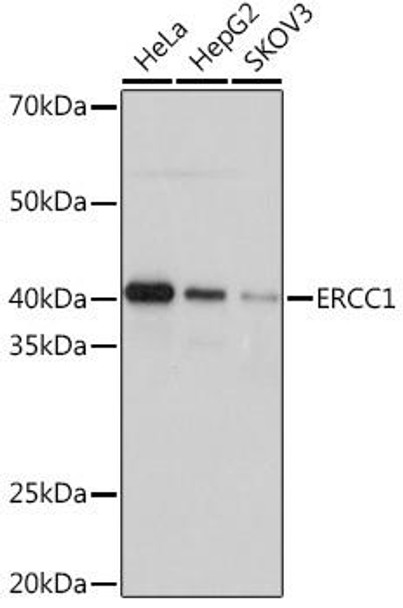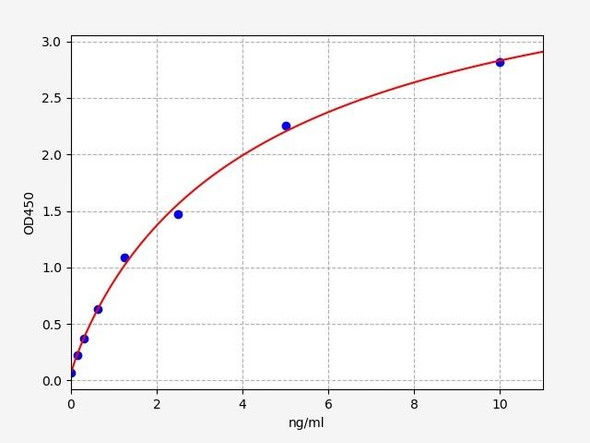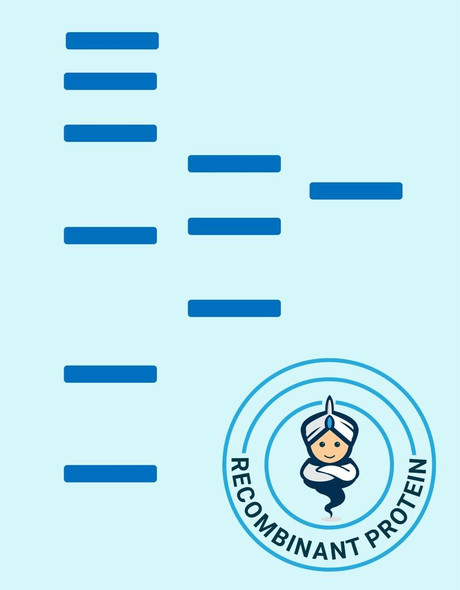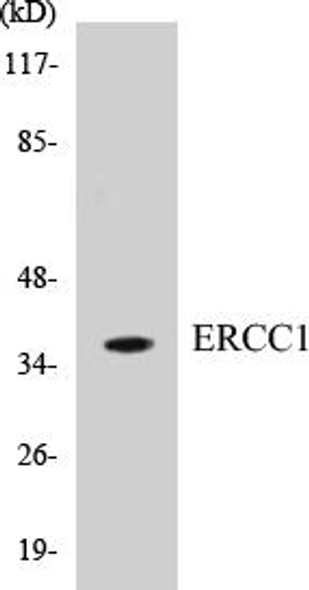Epigenetics & Nuclear Signaling Antibodies 5
Anti-ERCC1 Antibody (CAB4971)
- SKU:
- CAB4971
- Product Type:
- Antibody
- Antibody Type:
- Monoclonal Antibody
- Reactivity:
- Human
- Host Species:
- Rabbit
- Isotype:
- IgG
- Synonyms:
- COFS4
- Synonyms:
- RAD10
- Synonyms:
- UV20
- Research Area:
- Epigenetics and Nuclear Signaling
Description
| Product Name: | ERCC1 Rabbit mAb |
| Product Code: | CAB4971 |
| Size: | 20uL, 50uL, 100uL |
| Synonyms: | COFS4, RAD10, UV20 |
| Applications: | WB |
| Reactivity: | Human |
| Host Species: | Rabbit |
| Immunogen: | A synthesized peptide derived from human ERCC1 |
| Applications: | WB |
| Recommended Dilutions: | WB 1:500 - 1:2000 |
| Reactivity: | Human |
| Positive Samples: | HeLa, HepG2, SKOV3 |
| Immunogen: | A synthesized peptide derived from human ERCC1 |
| Purification Method: | Affinity purification |
| Storage: | Store at -20°C. Avoid freeze / thaw cycles. Buffer: PBS with 0.02% sodium azide, 0.05% BSA, 50% glycerol, pH7.3. |
| Isotype: | IgG |
| Sequence: | Email for sequence |
| Gene ID: | 2067 |
| Uniprot: | P07992 |
| Calculated MW: | 36kDa |
| Observed MW: | 39KDa |
| UniProt Protein Function: | Isoform 1: Non-catalytic component of a structure-specific DNA repair endonuclease responsible for the 5'-incision during DNA repair. Responsible, in conjunction with SLX4, for the first step in the repair of interstrand cross-links (ICL). Participates in the processing of anaphase bridge-generating DNA structures, which consist in incompletely processed DNA lesions arising during S or G2 phase, and can result in cytokinesis failure. Also required for homology-directed repair (HDR) of DNA double-strand breaks, in conjunction with SLX4. |
| NCBI Summary: | The product of this gene functions in the nucleotide excision repair pathway, and is required for the repair of DNA lesions such as those induced by UV light or formed by electrophilic compounds including cisplatin. The encoded protein forms a heterodimer with the XPF endonuclease (also known as ERCC4), and the heterodimeric endonuclease catalyzes the 5' incision in the process of excising the DNA lesion. The heterodimeric endonuclease is also involved in recombinational DNA repair and in the repair of inter-strand crosslinks. Mutations in this gene result in cerebrooculofacioskeletal syndrome, and polymorphisms that alter expression of this gene may play a role in carcinogenesis. Multiple transcript variants encoding different isoforms have been found for this gene. The last exon of this gene overlaps with the CD3e molecule, epsilon associated protein gene on the opposite strand. [provided by RefSeq, Oct 2009] |
| UniProt Code: | P07992 |
| NCBI GenInfo Identifier: | 119538 |
| NCBI Gene ID: | 2067 |
| NCBI Accession: | P07992.1 |
| UniProt Secondary Accession: | P07992,Q7Z7F5, Q96S40, B2RC01, B3KRR0, |
| UniProt Related Accession: | P07992 |
| Molecular Weight: | 25,211 Da |
| NCBI Full Name: | DNA excision repair protein ERCC-1 |
| NCBI Synonym Full Names: | ERCC excision repair 1, endonuclease non-catalytic subunit |
| NCBI Official Symbol: | ERCC1 |
| NCBI Official Synonym Symbols: | UV20; COFS4; RAD10 |
| NCBI Protein Information: | DNA excision repair protein ERCC-1 |
| UniProt Protein Name: | DNA excision repair protein ERCC-1 |
| Protein Family: | DNA excision repair protein |
| UniProt Gene Name: | ERCC1 |
| UniProt Entry Name: | ERCC1_HUMAN |



![Anti-ERCC1 Antibody (CAB18066)[KO Validated] Anti-ERCC1 Antibody (CAB18066)[KO Validated]](https://cdn11.bigcommerce.com/s-rd6ounxcu2/images/stencil/590x590/products/55209/59952/anti-ercc1-antibody-cab18066ko-validated__28982__10486.1706529202.jpg?c=1)


